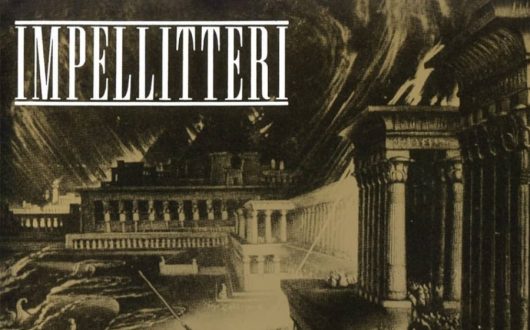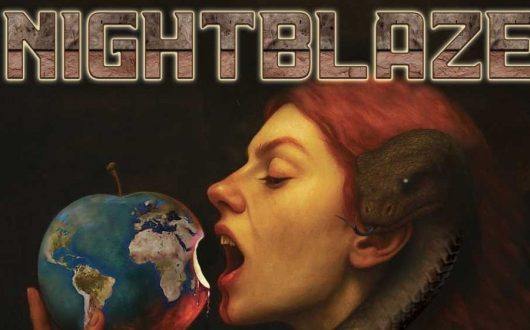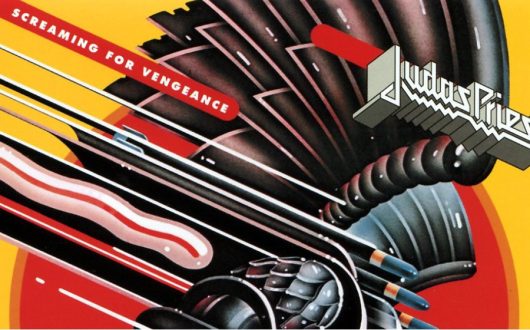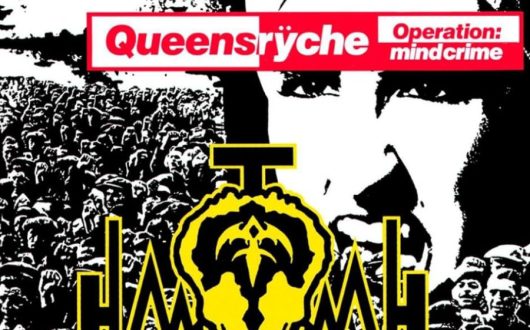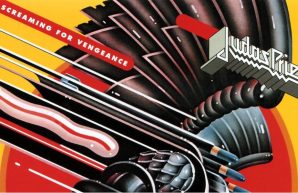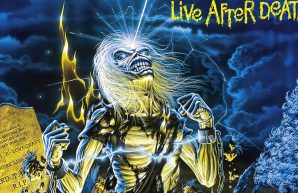Words: Adrian Hextall
A warning becomes a beckoning. A dark forest reveals a glowing circus tent. A heavy metal band on its tenth album still operates with the hunger of an underdog and the bond of a family. For Sweden’s theatrical masters, Avatar, the secret to their two-decade-plus ascent isn’t just found in the riffs, but in the unbreakable friendship that fuels their glorious madness. We sit down with ringmaster Johannes Eckerström to find out why going into the forest is the only path worth taking.
Twelve years ago, in a small room tucked away behind London’s bustling Oxford Street, I conducted one of my very first interviews with a fledgling band from Gothenburg. The two members of Avatar present that day were polite, focused, and possessed a quiet intensity that hinted at a grander vision. It was, as frontman Johannes Eckerström recalls with a laugh today, a milestone for them, too. “I’m pretty sure that was the first time we did it in that way, where I felt so legit,” he admits. “To sit in a room and wait for press from various countries to come in… I tried to play cool enough, but I was smitten by the attention. I think that was the first proper press day we did outside of festivals and venues.”
A dozen years, a handful of albums, and countless world tours later, that “legit” feeling has solidified into an undeniable reality. Avatar has become one of modern metal’s most essential and creative forces. Now, on the cusp of releasing their tenth studio album, Don’t Go In The Forest, and with a major headline tour looming in 2026, the band is bigger than ever. Yet, as I sit opposite Eckerström once more, the same intensity is there, now sharpened by experience and channelled into a concept that is both a horror movie trope and a profound artistic statement.
The album’s title is, of course, the classic piece of advice every character in a scary story promptly ignores. It’s a deliberate choice, a knowing nod to the very audience that finds solace in the dark corners of art. “If you are one of those weird little kiddos that is attracted to metal music to begin with, you’re one of those who goes, ‘I’m totally going into the forest,’” Johannes explains, his eyes lighting up. “A warning becomes a beckoning. That’s certainly part of it.”
This duality is the strange, beating heart of heavy metal itself—a genre that marries the forbidden with pure, exhilarating entertainment. “It’s this strange marriage of the dark and the attraction,” he muses. “We go to a big stadium to see Metallica and go ‘Wooo!’ while the song is actually about a man with no arms and no legs stuck in a bed who wants to die. And we have a lovely time hearing about it. So, having a warning that beckons people to want to step into that world is something we play with.”
The aesthetic for Don’t Go In The Forest pushes this idea further, painting a picture worthy of its own cinematic universe. Eckerström describes a film perpetually rolling in his head, “directed by David Lynch, preferably.” The scene is set: a person, lost and afraid in a cold, dark wood, stumbles upon an impossible sight. “Suddenly there’s some light shining between the trees,” he narrates. “You approach it, you hear music. You reach a meadow and there’s a circus tent there. It shouldn’t be there, but it is, neatly lit up with old light bulbs. You step inside, and that’s kind of the Avatar world.”
This world is a delicate balancing act. It could easily tip into the campy absurdity of Killer Klowns from Outer Space, but Avatar anchors their circus in a much deeper, more psychological territory. The friction between the joyous, headbanging release of the music and the often-unsettling nature of the lyrics is where the magic happens. “We have a good time doing it,” he confirms, “but the psychological nature of the actual content… I guess therein lies the friction that creates the sparks around what we do.” It’s an invitation to explore the unknown, a core tenet for any self-respecting metal fan seeking an escape from the drudgery of the everyday.
Our review of the album is here:
To create an album that truly explores the unknown, Johannes had to venture into the uncharted wilderness of his own mind. For Don’t Go In The Forest, he consciously resisted the urge to immediately analyse and define every creative spark, choosing instead to trust his instincts and let the songs reveal themselves in their own time.
“Any creative idea rises from the subconscious, the tiny part that we don’t understand,” he explains. “You can liken it to diving into a dark lake. You swim to the bottom and you take something up from the mud. I’ve had a tendency more often than not to immediately swim to the shore, look at the thing and ask, ‘What is this? What should it become?’ and want to know what I will say about it in an interview two years later.”
This time was different. “I really leaned into staying underwater with it,” he says. “I didn’t necessarily need to know completely where it was going, lyrically more than anything. I was trusting that there was a sense of beauty in what I was writing, that it made sense somehow, and letting the subconscious guide the writing. Once it’s done, then you take a step back and look at the big picture.” The result is an album rich with the texture of dreams and memories, a more intimate and surreal journey than ever before.
This cinematic quality isn’t confined to the music. For years, the band has built a formidable visual world through their music videos, working almost exclusively with director Johan Carlén. Their ambition has led them from the featurette Legend of Avatar Country: a Metal Odyssey to a uniquely meta “making of” film, Scaling The Mountain for their follow up album, Hunter Gatherer.
“That album was mostly written during the pandemic, and me and my wife had various movie marathons,” Johannes recalls. “We watched all seven Paranormal Activity movies, and it hit me: this is cheap! The idea came that if we make a film that is the actual making of the album, for 95% of it we do not need to act. The acting will be done in Swedish with subtitles, so no one will know how horrible we are!” This clever premise allowed them to craft a slow-burn horror story where doppelgängers emerge from a well to murder the band. “The cinematic ambition is very much baked into ourselves. The music videos became a natural continuation of the songwriting, not just a marketing tool.”
“Ozzy is, in my opinion, still an underrated singer,” Johannes states passionately. “He had so many of those things that can’t be taught, natural charisma, a unique voice, that you forget the things he was actually really, really good at. And that was conveying lyrics. Making the words mean something. I think he was one of the best.”
He points to an article he read that connected the emergence of heavy metal not just to blues and psychedelic rock, but also to 60s soul music. “The big emotion, the loudness, the drive!” he exclaims. “Soul lyrics of the 60s are not great words on a page, but coming out of the right mouth, it’s great poetry. Look at the song ‘Black Sabbath’, that sounds like fear. Look at ‘Changes’, that sounds like loss.”
This ability to convey pure emotion became his focus. “While the rest of us in metal sing about dragons with huge tits and motorcycles driving through a warzone in hell—and that’s great, I love it—Ozzy’s biggest song is ‘Mama, I’m Coming Home.’ It’s about, ‘Soon I’m going home to see my wife,’ and that’s nice. And it becomes amazing. I put so much trust always in, ‘it’s heavy metal because I get sweaty, because I’m being loud.’ But I wanted a richer, melodic, dynamic journey, and therefore more types of expression connected to the lyrics. I really worked hard on improving that part in the writing and then doing it justice in the studio.”
This dedication is clearly resonating. The Avatar fanbase is growing exponentially, a fact that makes their self-described “underdog” status, mentioned in their press release, seem almost comical. Johannes laughs it off. “I’ve been here every day, so you’re still at the Battle of the Bands, looking at your peers. You never quite let go of that. We reach new levels all the time, and we are smart enough to appreciate and enjoy the trip. But in terms of wanting to become bigger… yeah, cool, we grow more than ever. But who’s that over there? Oh, Metallica. In absolute numbers, there are quite a few more rungs on that ladder.”
It’s this mindset, never satisfied but enjoying the climb, that keeps them grounded. “We’re dumb enough to never be pleased, but we’re also not too dumb to have fun while climbing it.”
And that, right there, is the secret. The fun. In an industry notorious for chewing up bands and spitting them out, Avatar has not only survived but thrived for over two decades. The reason is simple, yet profound. It’s laid out in what Johannes calls their core “job description.”
“We want to write and perform our own material. We want to take that, whatever that ends up being, as far as we can in a manner where we remain friends. And that’s really it.”
This final clause is the most important. It’s the North Star that has guided them through lineup changes, the launch of their own independent label, Black Waltz Records, and the unforgiving grind of life on the road. It’s the reason they are still here, stronger than ever, while countless peers have imploded under the weight of ego and business pressures.
“Too many bands break up because they fall out of friendship,” he says, his tone turning serious. “They forgot the reason they put the band together in the first place. Even from a cold-hearted business standpoint, prioritising friendship means this is a business that has the potential to stay open for another 20 years instead of another two months.”
They’ve seen the alternative up close. They’ve toured with bands who are miserable, who treat the road as a necessary evil that takes them away from home. For Avatar, the road is home, because they are home with each other.
“We have the most fun in the world,” Johannes says with a broad smile. “To the degree where a certain musician in a certain band we toured with told us we ruined touring for them, because they didn’t realise it could have been as nice as we have it with our crew and in our camp. We feel at home on the road because we are at home with each other. If you’re suddenly just away from home 200 days a year… what the hell is that? That’s a miserable existence.”
As our time comes to an end, this is the message that lingers. The success of Avatar isn’t just measured in album sales, ticket stubs, or rungs on a ladder. It’s measured in the shared laughter in a tour bus, the collaborative spark in a rehearsal room, and the unwavering commitment to a pact made between five friends long ago. They dared to go into the forest, and what they found there wasn’t a monster or a villain, but a sustainable, joyous way to create art and live a life they love, together. They are the last gang in town, and their greatest anthem is the sound of their own survival.
Avatar are touring Europe next year – dates and ticket details below:
EUROPEAN HEADLINE TOUR 2026
FEBRUARY
THU 05 – STOCKHOLM, SE – FALLAN
SAT 07- HELSINKI, FI – KULTTURILATO
MON 09 – OSLO, NO – SENTRUM SCENE
TUE 10 – COPENHAGEN – DK – VEGA
WED 11 – OSNABRUECK, DE – DIE BOTSCHAFT
THU 12 – BRUSSELS, BE – A.B.
SAT 14 – LONDON, UK – EXHIBITION
SUN 15 – MANCHESTER, UK – ACADEMY
MON 16 – GLASGOW, UK – BARROWLAND
TUE 17 – NOTTINGHAM, UK – ROCK CITY
WED 18 – BRISTOL, UK – O2 ACADEMY
FRI 20 – AMSTERDAM, NL – AFAS LIVE
SAT 21 – ESCH-SUR-ALZETTE, LU – ROCKHAL
SUN 22 – ZURICH, CH – KOMPLEX
TUE 24 – BARCELONA, ES – RAZZMATAZZ
WED 25 – MADRID, ES – LA RIVIERA
FRI 27 – LISBON, PT – LAV
SAT 28 – BILBAO, ES – SANTANA 27
MARCH
MON 02 – LYON, FR – LE CUBE
TUE 03- MILAN, IT – ALCATRAZ
WED 04 – VIENNA, AT – GASOMETER
THU 05 – MUNICH, DE – TONHALLE
FRI 06 – COLOGNE, DE – E-WERK
SAT 07 – PARIS, FR – LE ZENITH
MON 09 – WIESBADEN, DE – SCHLACHTHOF
TUE 10 – ZLIN, CZ – SPORTS HALL DATART
WED 11 – WARSAW, PL – STODOLA
THU 12 – BERLIN, DE – COLUMBIAHALLE
FRI 13 – HAMBURG, DE – DOCKS
WITH METALLICA — SUMMER 2026
SAT 24 MAY — Frankfurt, DE — Deutsche Bank Park
THURS 11 JUNE — Budapest, HU — Puskas Arena
FRI 19 JUNE — Dublin, IE — Aviva Stadium
SAT 5 JULY — London, UK — London Stadium
![]()
Tickets and details: https://avatarmetal.com/#tour














